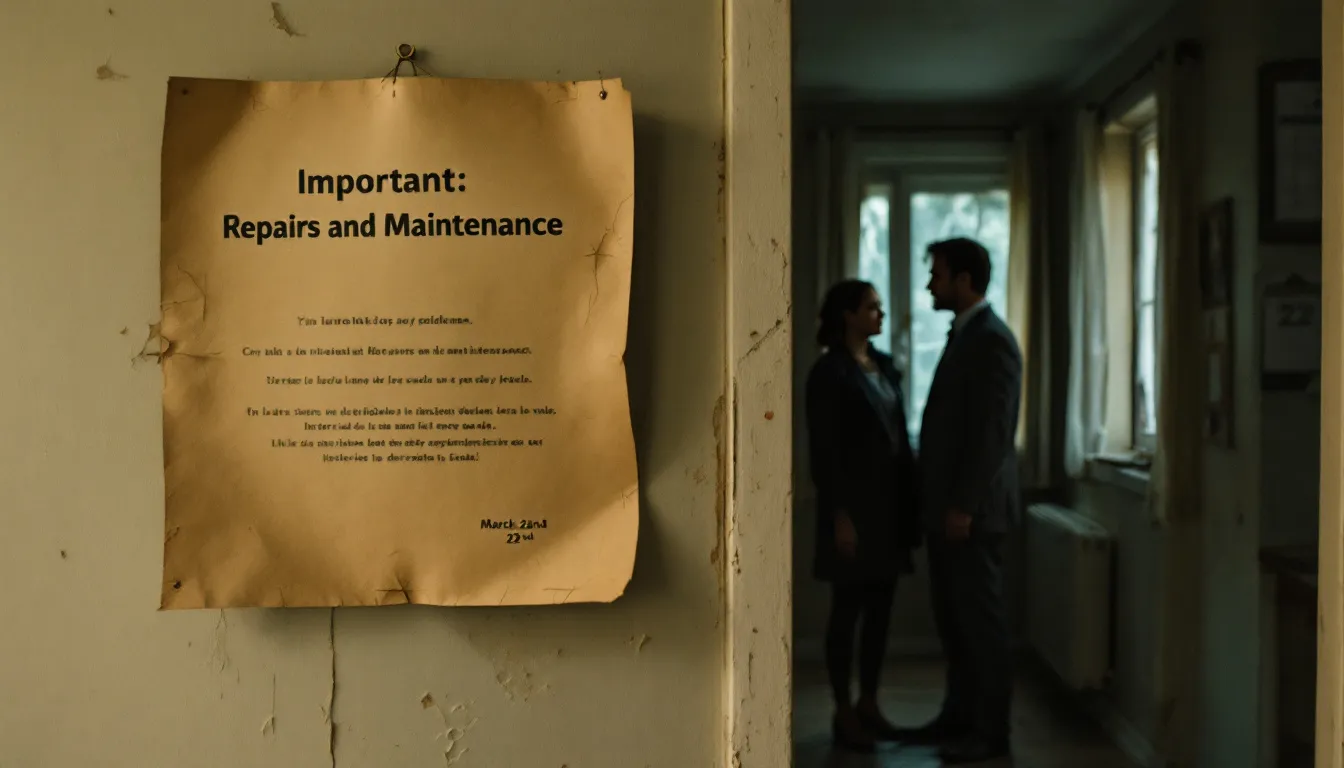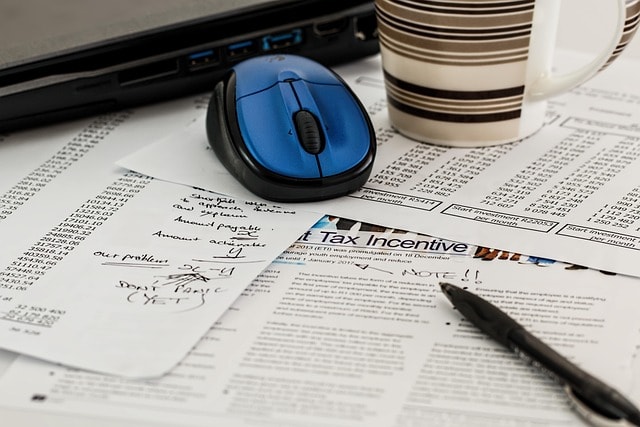Landlords are often responsible for routine and ongoing maintenance tasks around their rental property. They clean the carpet, keep the lawn mowed, and perform basic upkeep. But when a tenant reports a plumbing issue or a mold problem in their apartment, issues outside the scope of normal ‘wear and tear,’ can a landlord charge a tenant for labor costs?
As a landlord, calculating costs can get tricky when it comes to landlord time-based expenses and labor. When it comes to deducting labor costs, you need to not only consider the amount of time spent on repairs but also the hourly rate for that labor. However, it’s important to note that deducting personal labor is not allowed; property owners cannot claim the value of their own labor as a deductible expense.
To optimize tax benefits, landlords should focus on other allowable deductions, such as materials and hired labor. Utilizing hired labor can enhance profitability through eligible deductions.
Fortunately, there are several methods that can help you to accomplish this task.
Introduction to Landlord Tax Deductions

As a rental property owner, it’s essential to understand the various tax deductions available to minimize your taxable income and maximize your returns. Rental property tax deductions can include expenses such as mortgage interest, property taxes, insurance premiums, and maintenance costs. However, it’s crucial to note that you cannot deduct your own labor on a rental property, as the Internal Revenue Service (IRS) considers this a personal contribution. In this section, we’ll explore the different types of tax deductions available to rental property owners and provide guidance on how to navigate the complex world of tax laws and regulations.
Understanding these deductions can significantly impact your rental property finances. For instance, mortgage interest and property taxes are often some of the largest expenses for property owners, and being able to deduct these can lead to substantial tax savings. Similarly, insurance premiums and maintenance costs are also deductible, helping to reduce your overall tax burden.
However, it’s important to remember that while you can deduct many expenses, your own labor on a rental property is not one of them. The IRS views this as a personal contribution, and therefore, it does not qualify as a deductible expense. By familiarizing yourself with these tax laws, you can ensure that you are taking full advantage of the tax benefits available to you as a rental property owner.
When Can a Landlord Charge Tenants for Repairs?

Generally speaking, landlords are responsible for making sure that their rental properties are habitable—regardless of the repair costs.
This means landlords have to make sure their property is safe, clean, and in good repair before they rent it out. If the property is not in a habitable condition, tenants have a right to terminate their lease agreement.
Under normal circumstances, landlords are responsible for the cost of repairs, maintenance, and improvements to the property. They can’t pass those costs on to their tenants. But there are exceptions.
If the property needs work because of something a tenant has done, such as breaking a window or damaging a wall, the landlord can charge the tenant for the repair costs as long as that’s stated in the lease agreement.
The charges for materials and landlord labor must be reasonable. A landlord cannot inflate an expense just because he or she wants to make more money from it. Landlords have a fiduciary duty to act reasonably and prudently when it comes to expenses, so claiming that a $10 light switch costs $50 is not acceptable. Landlords should ensure repair costs are in line with the fair market value to avoid disputes.
Additionally, legal fees incurred for services like eviction proceedings can be tax deductible.
Can You Charge Tenants for Your Time and Deducting Personal Labor as a Landlord?
As a landlord, you are entitled to be paid for your time and labor, but only within certain limits. In many states, charging a tenant for landlord labor can only be done if the tenant has violated the terms of the lease by not paying rent, causing damage, or otherwise breaching the lease.
To charge tenants for your time, you must first have a specific written clause in the lease allowing you to charge labor costs. Most leases do not contain such a clause because tenants expect that landlords will take care of property maintenance, as this is their business.
However, some landlords add clauses allowing them to charge labor costs on top of actual repair costs for issues above and beyond normal “wear and tear.”
For example, the lease may state that if the landlord must go out of his or her way to deal with something the tenant did wrong, the landlord can charge for their time and mileage.
While ‘sweat equity’ cannot be deducted, it can contribute to the property’s market value.
A typical formula may allow a charge of $50 per hour plus $0.50 per mile traveled, on top of any actual repair costs or cash penalties imposed on the tenant due to their negligence or willful act.
Alternatively, professional property management services can be a valuable and deductible option for handling property maintenance and tenant issues.
Tax Rules and Regulations

The IRS has specific rules and regulations regarding tax deductions for rental properties. For example, rental property expenses can be deducted as an ordinary and necessary business expense, but personal labor is not eligible for deduction. Property management fees, loan origination fees, and closing costs are also deductible, but only if they are directly related to the rental property. It’s essential to understand these tax rules and regulations to ensure you’re taking advantage of all the valuable tax deductions available to you. Consulting with a tax professional can help you navigate these complex rules and ensure you’re in compliance with all tax laws and regulations.
For instance, property management fees paid to professional property management companies can be deducted as they are considered necessary for the operation of your rental business. Similarly, loan origination fees and closing costs associated with acquiring or refinancing a rental property are also deductible. However, these deductions must be directly related to the rental property and not for personal use.
Understanding these tax rules can be challenging, which is why consulting with a tax professional is highly recommended. Tax professionals can provide personalized advice and ensure that you are in compliance with all tax laws, helping you to maximize your tax benefits and minimize your tax liability.
Can You Deduct Landlord Labor and Time as Rental Property Expenses on Taxes?

You can deduct the cost of labor you hire to work on your investment property, but you must follow IRS guidelines. The IRS doesn’t allow you to deduct personal labor as a business expense because you cannot pay yourself with after-tax dollars.
You can deduct the repair costs, insurance, and maintenance paid to outside contractors or workers, however. Ordinary and necessary expenses related to managing rental properties are also deductible.
You can only deduct expenses that are directly related to earning income from your rental property. For example, if you hire a carpenter to repair an exterior doorway on your rental house, the cost is deductible because it relates to maintaining the value of your property and keeping your tenant safe.
If you hire a carpenter to build cabinets for your house that you live in, that’s not an expense that’s related to renting out the house, so it’s not deductible.
If a landlord is also the person who performs the repairs, they cannot deduct their time as a rental expense. Instead, the landlord should pay themself a reasonable salary and deduct that amount as a business expense. Tax preparation fees incurred for preparing rental property tax returns are also deductible.
Non-Deductible Expenses

While there are many expenses that can be deducted from rental income, there are also some that are not eligible for deduction. For example, the cost of improvements that prolong the useful life of the property or improve it beyond its original condition are not deductible as expenses. Instead, these costs must be capitalized and depreciated over time. Additionally, personal labor on a rental property is not deductible, as the IRS considers this a personal contribution. Understanding what expenses are not eligible for deduction can help rental property owners avoid common mistakes and ensure they’re in compliance with all tax laws and regulations.
Capital improvements, such as adding a new roof or installing a new HVAC system, are considered to enhance the value of the property and must be depreciated over their useful life. This means that instead of deducting the entire cost in the year the expense was incurred, you will spread the deduction over several years.
Similarly, any personal labor you contribute to your rental property cannot be deducted. The IRS views this as a personal contribution, and therefore, it does not qualify as a deductible expense. By understanding these non-deductible expenses, you can avoid common pitfalls and ensure that your tax filings are accurate and compliant with IRS regulations.
Record-Keeping and Bookkeeping
Accurate record-keeping and bookkeeping are essential for rental property owners to ensure they’re taking advantage of all eligible tax deductions. This includes maintaining detailed records of all expenses related to the rental property, including receipts, invoices, and bank statements. Rental property owners should also keep track of rental income, including rent received and any other income earned from the property. By maintaining accurate records, rental property owners can ensure they’re in compliance with all tax laws and regulations and minimize their taxable income.
Keeping detailed records of all expenses related to your rental property is crucial. This includes not only major expenses like mortgage interest and property taxes but also smaller expenses such as repairs and maintenance. Receipts, invoices, and bank statements should be organized and easily accessible for tax preparation.
Additionally, tracking rental income is equally important. This includes not only the rent collected from tenants but also any other income earned from the property, such as fees for late payments or pet deposits. By maintaining accurate and detailed records, you can ensure that you are in compliance with all tax laws and regulations, and you can maximize your tax deductions, ultimately reducing your taxable income.
Conclusion
Navigating the complexities of rental property tax deductions can be challenging for property owners. While you cannot deduct your own labor on a rental property, there are numerous other expenses that can be deducted to maximize your tax benefits. Understanding the IRS rules and regulations is crucial in ensuring compliance and optimizing your rental property finances. By leveraging allowable deductions such as mortgage interest, property taxes, and professional management fees, rental property owners can reduce their taxable income and enhance their profitability. Consulting with a tax professional can provide valuable insights and help you make informed decisions tailored to your specific situation.
FAQs
1. Can I deduct my own labor on a rental property?No, the IRS considers your own labor as a personal contribution, and it is not deductible. You cannot claim the value of your time and effort as a deductible expense.
2. What expenses are tax-deductible for rental properties?Common deductible expenses include mortgage interest, property taxes, insurance premiums, repairs and maintenance, and property management fees. These deductions help reduce your taxable income and improve your rental property’s profitability.
3. Can I charge tenants for repairs and deduct the costs?Yes, if the lease agreement allows it and the repairs are due to tenant negligence. You can deduct the costs associated with the repairs, provided they are directly related to maintaining the rental property.
4. Are capital improvements deductible?Capital improvements, such as major renovations or additions, are not immediately deductible. Instead, they must be capitalized and depreciated over their useful life.
5. Should I consult a tax professional for rental property deductions?Yes, consulting a tax professional is highly recommended. They can provide personalized advice, ensure compliance with tax laws, and help you maximize your tax benefits.
Dave is a seasoned real estate investor with over 12 years of experience in the industry. Specializing in single-family residential real estate, David’s strategic approach combines market analysis, financial acumen, and a deep understanding of urban development trends to maximize investment returns.









